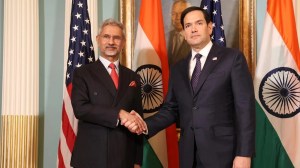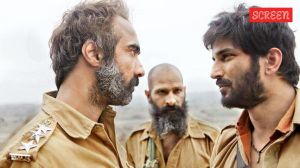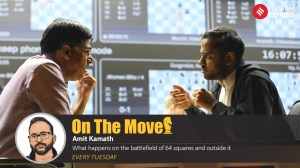5000-year-old yoga copyrighted?
First he got them hot. Then he got them bothered. Then he got sued. Bikram Choudhury, the Beverly Hills yoga master to the lithe and sweaty ...

First he got them hot. Then he got them bothered. Then he got sued. Bikram Choudhury, the Beverly Hills yoga master to the lithe and sweaty masses, swept into San Francisco on Wednesday for mediation of an intellectual property lawsuit that has more twists and turns than his 26 postures, done twice each in a room heated to over 105 degrees.
Choudhury, America8217;s best known and most controversial yogi, opened one of his first schools in San Francisco in 1973 and now boasts 900 studios worldwide. He copyrighted, trademarked and franchised techniques, creating the first chain of its kind.
He also hired lawyers who set loose a flurry of cease-and-desist letters warning yoga teachers in the Bay Area and beyond not to teach his yoga or anything 8216;8216;derivative8217;8217; if they haven8217;t graduated from his 5,000-per-person training programme and are not paying a studio franchise fee. His letters threaten a penalty of 150,000 per infringement.
Now, a San Francisco non-profit organisation of yoga enthusiasts from San Rafael to Ft Lauderdale, Florida, is countering with a federal lawsuit attacking the guru8217;s claim that yoga is proprietory. They say that yoga is a 5,000-year-old tradition that cannot be owned. A trial date has been set for next February.
8216;8216;We8217;re not disputing that Choudhury did something creative and useful in putting the postures together in a certain order,8217;8217; says Elizabeth Rader, an attorney representing the non-profit Open Source Yoga Unity. 8216;8216;Our belief is that you can8217;t treat the poses as private property.8217;8217; Choudhury doesn8217;t stop with cease-and-desist letters. In July, he won a copyright-infringement suit against the owners of a Southern California yoga studio. Under the settlement, the operators agreed to pay Choudhury an undisclosed sum and never teach Bikram-style yoga.
Choudhury said he has copyrighted the sequence, not the postures. That, he says, is his intellectual property.
- 01
- 02
- 03
- 04
- 05































